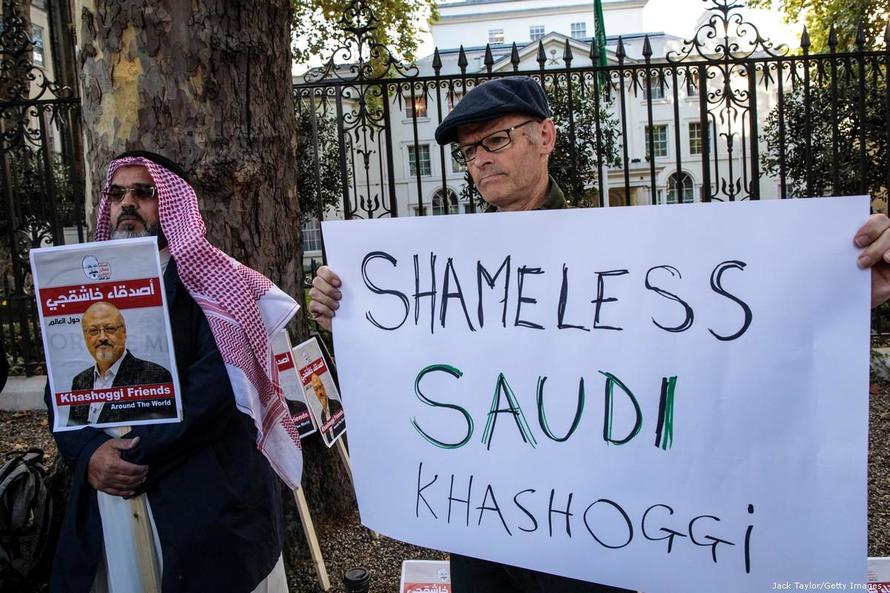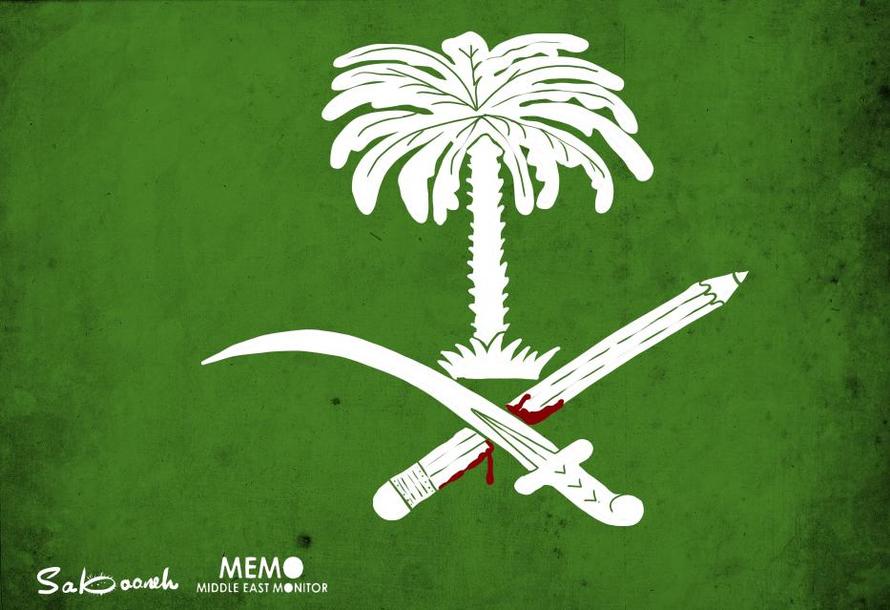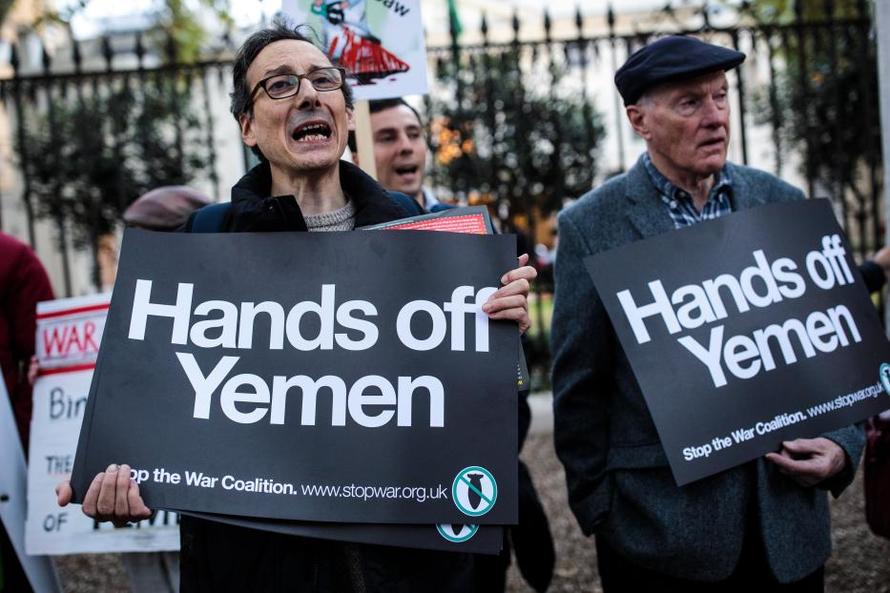Authored by Nasim Ahmed via MiddleEastMonitor.com,
A night of compelling debate at the Emmanuel Centre in Westminster on Monday evening concluded with 63 per cent of the 1,000-strong audience voting for the motion that “The West should cut ties with Saudi Arabia”.
The debate was organised by Intelligence Squared and began with a not insignificant 37 per cent of those present admitting that they were undecided on the issue. Two hours later, the audience had heard some of the most persuasive arguments for and against the motion and Londoners had made up their mind; they cast their vote to cut ties with Saudi Arabia.
Remarkably, a mere 5 per cent went home unsure of what to do with the Kingdom, which is a testament to the skill of all four speakers. Those defending the motion were journalist and broadcaster Mehdi Hasan and Saudi Arabian-born Professor of Social Anthropology at the London School of Economics Madawi Al-Rasheed; those speaking against were Egyptian-born Middle East expert Dr Mamoun Fandy and Conservative MP Crispin Blunt. Despite their defeat, the two speakers against the motion managed to sway 10 per cent of the undecided audience members to back their argument, increasing their share of the vote from 22 to 32 per cent.
The evening, perhaps unsurprisingly, belonged to Hasan and Al-Rasheed. Saudi Arabia under the de facto rule of Crown Prince Mohammad Bin Salman has stumbled from one self-inflicted crisis to another: the war in Yemen; the blockade of Qatar; support for the counter-revolution in the region post-Arab Spring; the so-called “anti-corruption” clamp down; and the brutal murder of journalist Jamal Khashoggi: all can be laid at the feet of the young Crown Prince.
Given Saudi Arabia’s diminishing international reputation, Hasan and Al-Rasheed were largely pushing at an open door to persuade the audience to back the motion. It was also easy for them to cite examples of the West’s hypocritical relations with the conservative Gulf state.
Hasan’s was an impassioned presentation, perhaps more so than any other speaker. Pointing to the Saudi-led coalition’s war in Yemen where “children starved to death” and the murder of Khashoggi, which the CIA concluded was ordered by the Crown Prince himself, he said that now was the time to stand up to “an out of control government” in Riyadh.
“We need to draw a line on the sand and not allow the Saudis to get away with murder,” the broadcaster insisted. Added to his list of Saudi infractions was Riyadh’s history of supporting terrorist groups. “The Saudis are the premier league champions of terror funding,” he alleged. In taking down one of the reasons often mentioned by defenders of the US and British links with Saudi Arabia — that of fighting terrorism — Hasan alleged that in its desperation to come out on top in Yemen the Saudi government is actually aiding Al-Qaeda against the Houthi rebels.
He also made a number of assertions that had the feel of knockout blows: “Asking Saudis to fight terror is like asking the mafia to fight organised crime,” he said, adding for good measure “or asking the Trumps to fight nepotism.” Confirming his clearly well-earned reputation as a pugilistic debater, Hasan made the most controversial remark of the night by claiming that “Saudi is an ISIS that’s made it.” This allegation provoked a strong backlash from his opponents when it was their turn to speak.
Western hypocrisy was an ongoing theme. Professor Madawi Al-Rasheed cited the latest example of this abuse of responsibility by pointing to Europe’s ultimatum to elected Venezuelan President Nicolás Maduro on the basis of his alleged human rights violations. She described Saudi Arabia as a “pressure cooker” not dissimilar, some would say, to Venezuela, and suggested strongly that the same European governments would never try to intervene in the same way in the Kingdom’s affairs, despite its appalling human rights record.
So much for Freedom of Expression in Saudi Arabia – Cartoon [Sabaaneh/MiddleEastMonitor]
Al-Rasheed seemed to imply that there is an ongoing pattern of racism in the West’s relations with the Middle East, often described as the “bigotry of low expectations”. She said that the “top down reform is pushing Saudis out of the country” and causing instability. Despite this, Western governments have continued to sell arms, while rolling out the red carpet, to Bin Salman. The LSE Professor viewed the West’s inability to expect countries like Saudi Arabia to meet the same standard of behaviour or achievements set for most other countries as a relic of colonialism.
Despite making an effective case not to cut ties with Saudi Arabia, it was nevertheless surprising to find Mamoun Fandy and Crispin Blunt resting much of their argument on the cliché of stability and human rights. The West has always preferred the former over the latter, which has all too often meant that some of the most brutal dictators have been left to rule with an iron fist over millions of people.
Dr Fandy, however, put forward an argument that seemed to resonate with the audience. He dismissed the idea that there was such a thing as “the West” and advised against the temptation to measure Saudi Arabia with a “special yardstick”. The US atrocities in Iraq and in particular the horrific images of torture that came out of Abu Ghraib prison were, he claimed, equally monstrous and deserved to be met with sanctions by other Western countries if they were to be consistent.
The author of Saudi Arabia and the Politics of Dissent listed the many ways in which the Kingdom plays a vital role in regional and global stability, including oil supplies and the fight against terrorism. He said that cutting ties doesn’t work as a foreign policy, pointing to Cuba, Iran and North Korea as examples. He then described the call to cut ties with Riyadh as nothing but a “burning desire for revenge” by people who have an “immature romantic notion of international politics.”
The case for stability was made more forcefully by Blunt. He admitted having a rosy opinion of Bin Salman, whom he described as a “visionary and reformer” after meeting him in Riyadh in 2015. The MP for Reigate said that he has a “nuanced” view of the issue facing Saudi Arabia and sees himself as the most balanced opponent of the Saudi monarchy. He is the chair of the Detention Review Panel (DRP) — a cross-party group of British parliamentarians and lawyers — investigating the torture of women’s rights activists arrested in the Kingdom last year.
Protesters demonstrate against the war in Yemen and the killing of journalist Jamal Khashoggi outside the Saudi Arabian embassy on October 25, 2018 in London, England [Jack Taylor/Getty Images]
In making a persuasive case against cutting ties with Riyadh, it was stressed that such a measure was reserved for countries in a state of war, which is not how one would describe Saudi Arabia’s relations with the West. Fandy and Blunt, however, suggested that in light of Saudi Arabia’s policy in Yemen and the killing of Khashoggi, arms sales and defence ties should be reconsidered without going so far as to cut ties.
Blunt encouraged the audience to think about the consequence of “camping out on the moral high ground,” and asked, “What would happen if the West cut ties with Saudi Arabia?” That would, he insisted, be a gift to China and Russia. “While it may provide moral satisfaction, full disengagement with the Kingdom would remove what oversight already exists.” Taking the stability argument to a level mocked by his opponents as “project fear”, Blunt predicted revolution and civil war, which he argued would be “infinitely worse” than the status quo. “Britain” he concluded, “has a civilising influence” on Riyadh which would be lost if the West cut ties with Saudi Arabia.
Sadly for him, two-thirds of the audience disagreed with him, and Hasan and Al-Rasheed carried the debate. That result should set alarm bells ringing in Riyadh which, given Mohammad Bin Salman’s relatively low public profile since the Khashoggi murder, must know that its international standing is at a very low ebb.
via ZeroHedge News http://bit.ly/2WOh3Yk Tyler Durden


